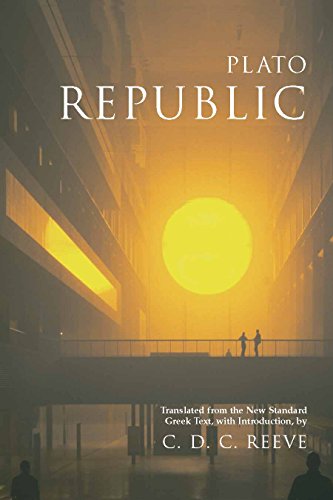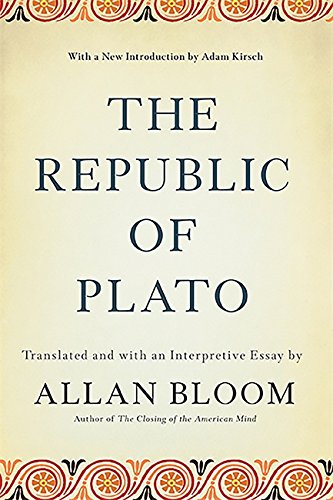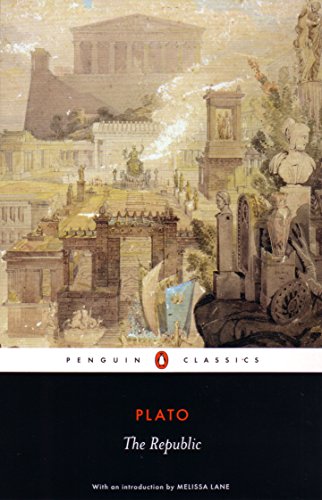Republic
by Plato
Republic by Plato is one of the many texts in a series of dialogues. One of the great minds of the ancient times and still revered today, Plato uses these dialogues to share his thoughts on varied subjects.
This dialogue goes into much detail on politics and society. Plato discusses the rulings of various states that he is familiar with as well as the best ways to govern. Also included in the topics of this text are justice, unjust rulings, education in regards to leading, and the soul. While the text as set up as a conversation between Plato and various colleagues, it does help to have a well-made translation.
Penguin Classics offers an easily accessible copy of Republic, one that many universities use today. However, the translation comes off as rather basic in many cases and for someone wanting to really appreciate the work there are better options. There are a lot of complaints on this edition about bad copy-work and rather odd page spacing. If you’re looking for a simple approach to the topic for maybe reference work or would rather make your own notes without the added fluff of comments and notations already made by the publisher this one will do. Hackett Classics has done a great job with their version. C.D.C. Reeve of the University of North Carolina has tackled the translations and has approached them by using the rest of Plato’s work as a translation tool. This allows the concepts of the author to shine through and is especially great for those who have read the rest of Plato’s dialogues. It also boasts an extensive index, glossary, and bibliography for those interested in further reading. Basic Books is the edition I would lean towards. The translator, Allan Bloom of University of Chicago fame, has gone through translating in a word-by-word literal sense. This removes much of the fluff and modern wordage of many other translations and leaves an edition with Plato’s ideals apparent for all to see. It isn’t bare bones though, it holds a hefty page count and contains an essay, notations, and an introduction by Adam Kirsch that delve into what Plato was trying to achieve in this text.


